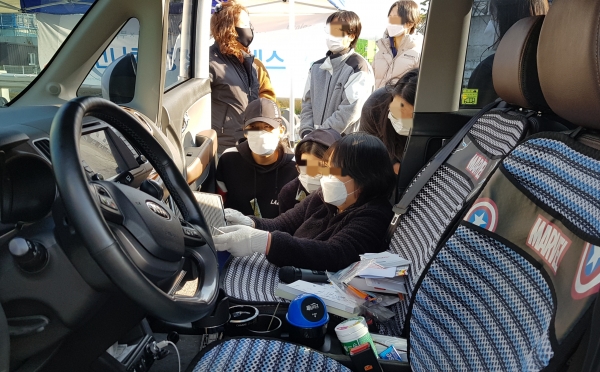
South Korea ranked ninth highest in the quality of roads ranking, in which the quality of driving and its safety of a country is numerically measured. In contrast to its high position in the ranking, drivers in Korea experience contrasting driving conditions based on their sex.
“Madam Kim” is a Korean slang used to mock women who are not a good at driving. The word “madam” refers to the Korean stereotype of a woman who is incapable of doing anything by herself and simply relies on her husband. Although the phrase has become prevalent in various media, there is no Korean phrase targeting immature male drivers even though statistics from Statistics Korea indicate higher rates of Road Traffic Act violation in male drivers.
In this social background, a project called Unniecha, meaning sister’s car in Korean, was launched to empower women’s rights for independence of mobility. Unniecha has been providing information on driving, car repairs, legal advice, and vehicle insurance, ultimately leading to women’s solidarity and growth. There were 40 participants in the project so far, and Lee Yeon-jee is the director behind this project.
Lee defined independence of mobility as the power to head wherever and whenever the person wants.
“It’s hard to imagine someone without the freedom of mobility in modern society,” Lee said. “But you can recall people saying, ‘women are naturally bad at driving because they lack the ability to perceive space than men,’ or ‘why do you learn to drive? You will meet a man who can do it for you anyway.’”
Lee pointed out these phrases make women doubt their strength to achieve a goal and create a threshold to obstruct women from driving. Lee emphasized it is a powerful act to talk about freedom and fight to pursue that right, but some freedom cannot be pursued because people are not aware of its existence. This is the reason Lee wanted to set women’s freedom of mobility as the core value of her project.
Director Lee also shared a story that happened while she was driving her black sedan.
“People rarely honk or offend me from my back while driving because of my car, but interestingly, if some drivers see my face through the front glass or an opened window, they honk more easily and shoot high beams,” Lee said. “There is no need to mention the random calling out of ‘ajumma’ to a woman when a quarrel occurs on the road.”
Lee was commended by a number of people who participated in Unnicha’s car repair and washing workshops and received support from the Ministry of Gender Equality and Family for her achievements, but Lee had in fact faced difficulty even before launching her project.
On the day before officially uploading the first promotional poster on Unniecha, Lee discovered an article that was denouncing her project.
“I do not know how the journalists wrote about my project with information I had not openly announced, but I realized some people criticizing merely because a woman is providing something for other women,” Lee said.
But Lee was able to find her reason for being after opening the Unniecha workshop. Women came from all regions across Korea, from Busan to Jeonju, to participate in the program.
“I saw their joyful eyes glistening with curiosity and concentration, and I felt that this is the moment I have been living to encounter,” Lee said.
When asked if she had any ultimate goal she wishes to achieve, Lee answered that she wants to change the car crash test conventions in the long run.
“The reason female drivers face severe injuries more than men is because there is a lack of data in female drivers when testing car crashes, and I hope I could change that tradition by increasing the number of female drivers.”
Lee explained that she did not launch Unniecha because she knew best about cars. She wanted other women to join her and talk if they were interested in women’s driving or feminist agendas. With 37 active members in the project, director Lee is still accepting new members who wish to join Unniecha via Instagram and Twitter.
“Although I am aware that a number of universities in Seoul have an active discussion on feminism, there are more places that do not have that environment,” Lee concluded. “This is the very reason I think there should be people actively encouraging other women. I am not trying to look great, but I want to speak up that there is a person thinking exactly the same way as you are right now. I thank Ewha Voice for offering that opportunity.”

